India’s Supreme Court refuses to allow same-sex marriage in landmark verdict
Court urges government to enact legal recognition of same-sex relationships but stops short of including these under definition of marriage
Your support helps us to tell the story
From reproductive rights to climate change to Big Tech, The Independent is on the ground when the story is developing. Whether it's investigating the financials of Elon Musk's pro-Trump PAC or producing our latest documentary, 'The A Word', which shines a light on the American women fighting for reproductive rights, we know how important it is to parse out the facts from the messaging.
At such a critical moment in US history, we need reporters on the ground. Your donation allows us to keep sending journalists to speak to both sides of the story.
The Independent is trusted by Americans across the entire political spectrum. And unlike many other quality news outlets, we choose not to lock Americans out of our reporting and analysis with paywalls. We believe quality journalism should be available to everyone, paid for by those who can afford it.
Your support makes all the difference.India’s top court has rejected a landmark petition seeking the recognition of same-sex marriage in the country, a blow for the queer community that denies tens of millions of LGBT+ couples the right to marry their partners.
In a lengthy judgement, the Supreme Court of India urged the government to create legal recognition for same-sex couples so that they do not face discrimination but stopped short of including such couples within the existing legal framework of marriage.
The case involved 21 separate petitions from members of the LGBT+ community who argued that not being able to marry violated their constitutional rights, making them “second-class citizens”.
The government contested the petitions, which came just five years after India decriminalised gay sex, arguing that marriage is exclusively an institution between a man and a woman and that those seeking marriage equality represented an “urban elitist view for the purpose of social acceptance”.
The case was overseen by the country’s most senior judge, chief justice Dhananjaya Yeshwant Chandrachud, as well as four other Supreme Court justices. It held hearings up until 11 May this year and had been deliberating its verdict for more than five months since then.
Giving his judgment, Mr Justice Chandrachud said marriages were clearly defined as being between a man and a woman in India’s Special Marriages Act (SMA), under which weddings outside of the scope of traditional religious ceremonies such as interfaith and intercaste marriage are registered. The petitioners had asked that the SMA be interpreted to also cover same-sex marriage.
Mr Justice Chandrachud said the role of the court was not to make laws but only to interpret them, adding that reading words into the SMA would “be redrafting the law”.
Despite Mr Justice Chandrachud speaking in favour of allowing same-sex and unmarried couples to adopt children, the court also ruled by three judges to two against expanding the definition of adoption laws to permit this.
However, he also argued that the “failure of the state to recognise the bouquet of rights flowing from a queer relationship amounts to discrimination”.
The chief justice rejected the government’s submission that the push for same-sex marriage was only an “urban and elitist” concept.
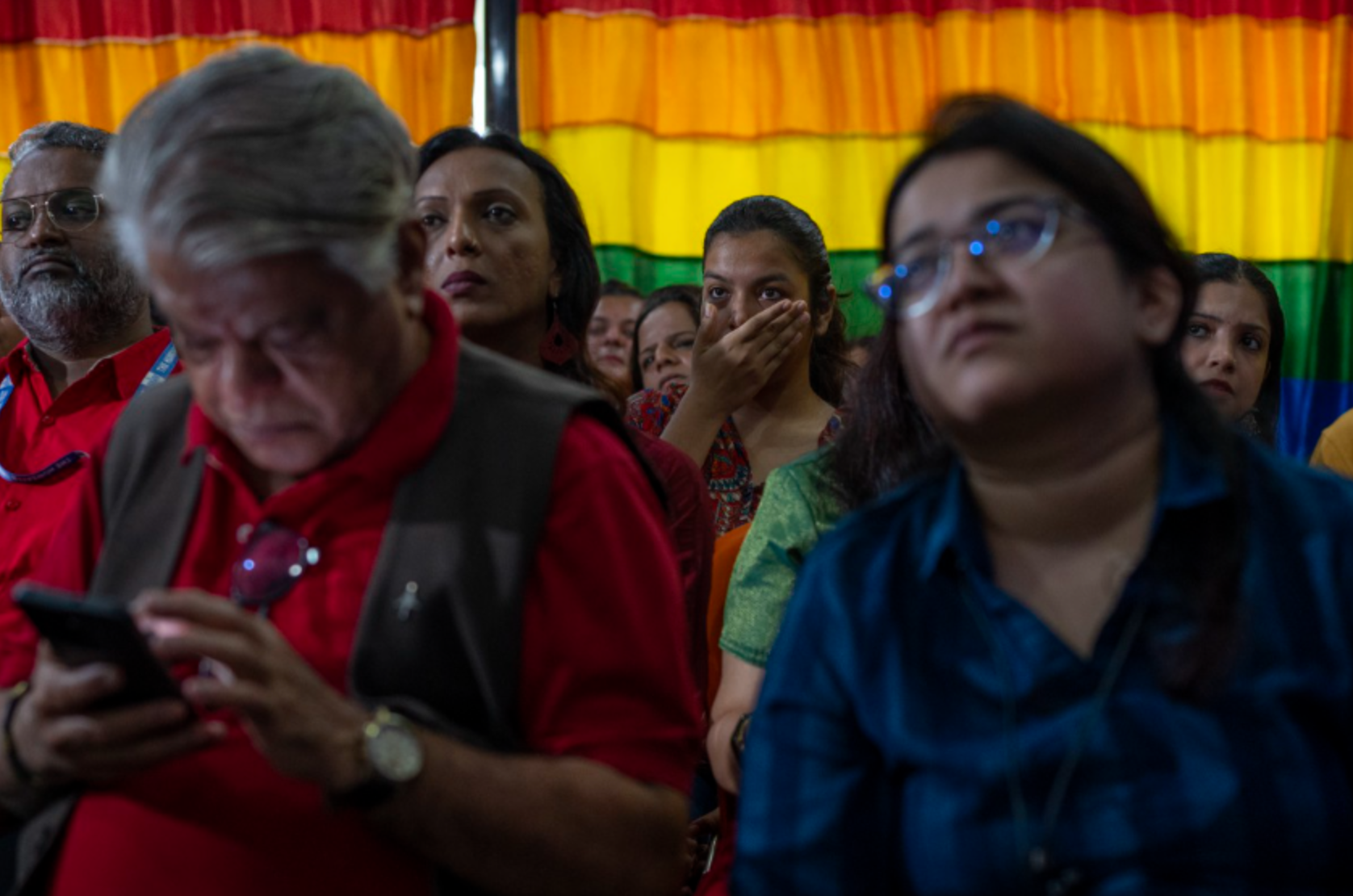
“Homosexuality or queerness is not limited to urban and affluent spaces,” the chief justice said. “To imagine that queer people only exist in urban centres is to erase them [where they exist elsewhere]. People may be queer regardless of whether they are from villages or small towns and regardless of caste or economic location.”
The chief justice concluded that “there is no universal conception of the institution of marriage and that it lies within the domain of parliament and state legislatures to enact laws recognising and regulating queer marriage”.
“This court cannot either strike down the constitutional validity of the Special Marriage Act or read words into the Special Marriage Act because of its institutional limitations.
“The court, in the exercise of the power of judicial review, must steer clear of matters, particularly those impinging on policy, which falls in the legislative domain,” a view also concurred to by Justice Sanjay Kishan Kaul and Justice Shripathi Ravindra Bhat in their own judgments.
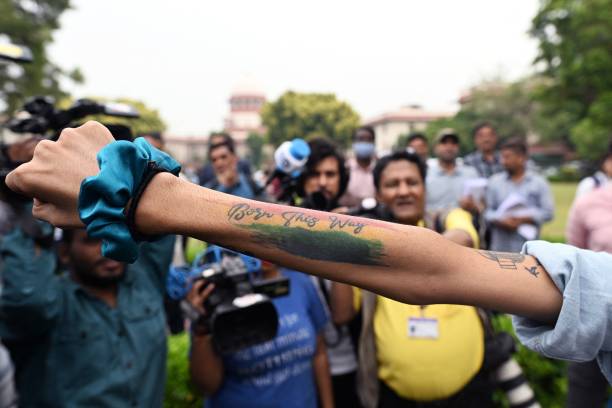
The judges differed over whether the court should recognise the right to form same-sex civil unions. While Mr Justice Chandrachud and Mr Justice Kaul ruled in favour, Mr Justice Bhat, Justice Hima Kohli and Justice Pamidighantam Sri Narasimha emphasised that there was no unqualified right to marriage under the Indian constitution.
Mr Justice Bhat said that though people have the right to choose their partners, “If it is agreed that marriage is a social institution, does it mean that any section of the society which wishes for the creation of a like institution, can seek relief by court?”
The court accepted the government’s proposal to set up an expert panel looking into the package of rights and privileges that can be extended to same-sex couples, short of permitting them to marry.
India’s government had earlier indicated its willingness to extend some social benefits to same-sex couples, though what form the recognition of such couples would take remains unclear.
The committee, headed by the cabinet secretary, will look into the “administrative steps” that the government can consider for ensuring social security and other welfare benefits, solicitor general Tushar Mehta informed the court in May.
Uday Raj Anand, a Delhi-based businessman and one of the petitioners in the case, expressed his disappointment with the verdict, saying he had waited anxiously in the court since 9am in the morning and had been “cautiously optimistic” when the judges finally emerged just before 11am. Describing his mood after hearing the judgements, he told The Independent: “Unfortunately, at the moment, it is not really celebratory.
“I was looking for some kind of concrete relief but unfortunately, that’s not really come.”
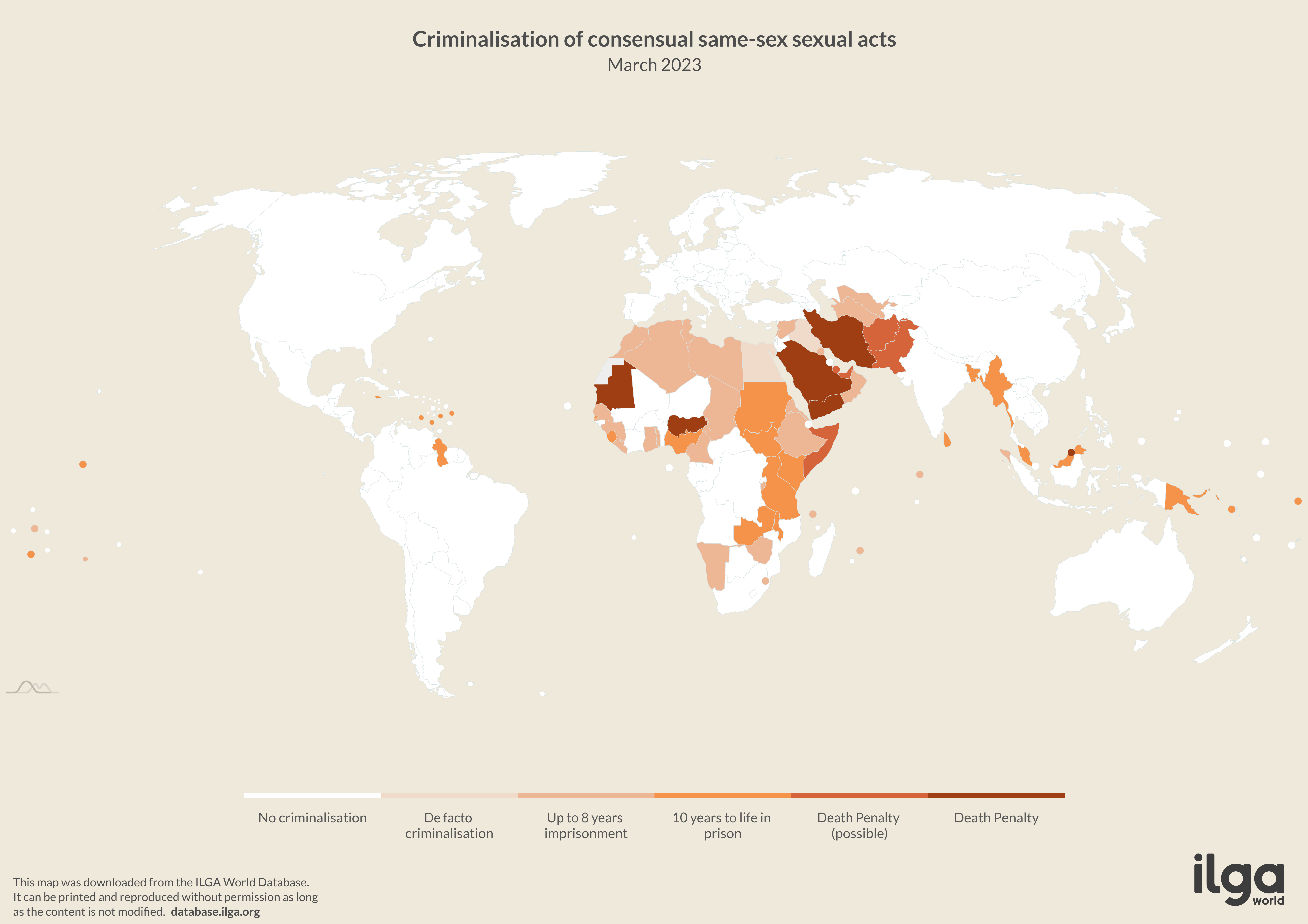
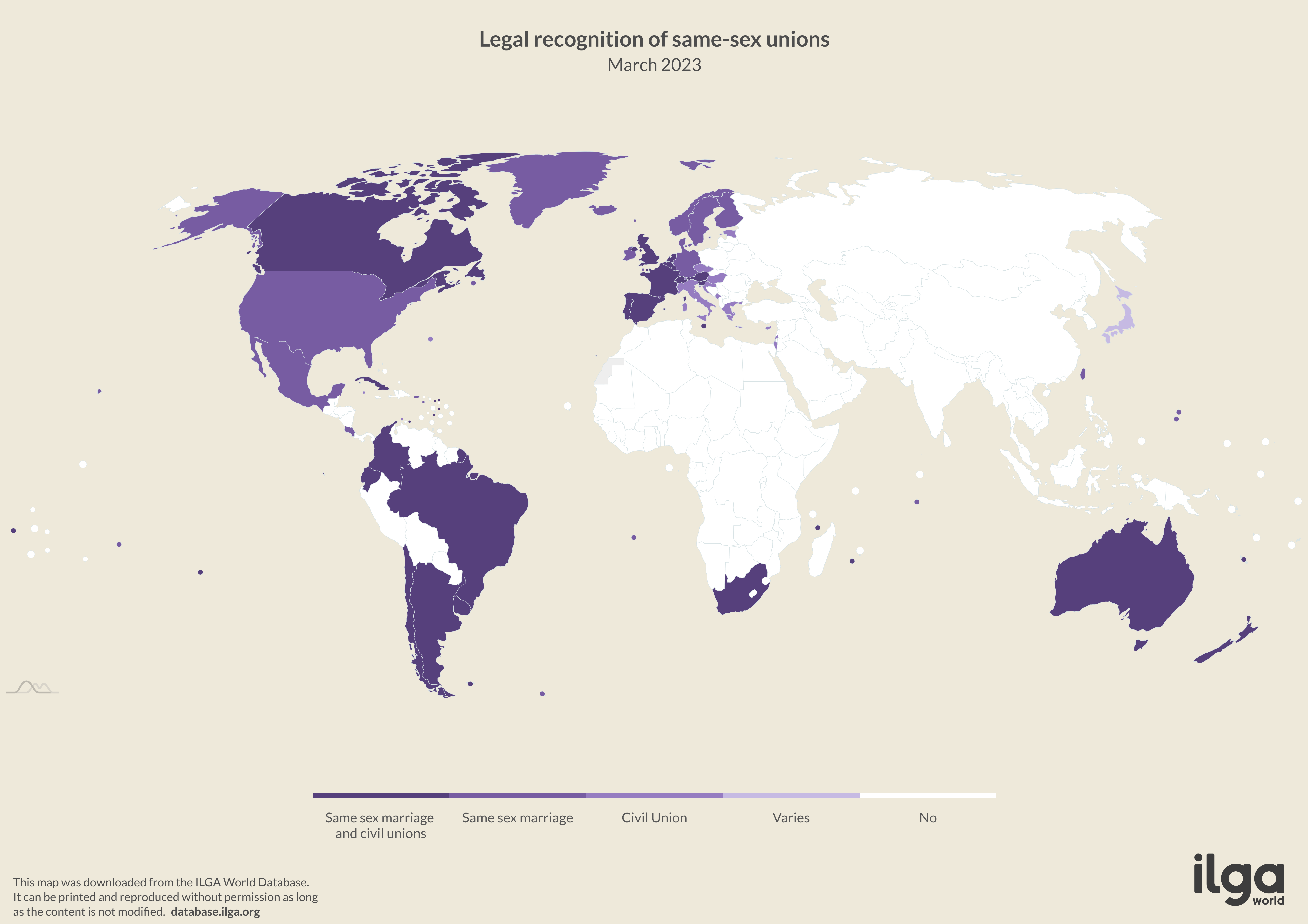
Another petitioner, Mario da Penha, said it was “a day to be disappointed but not to lose hope”.
“There’s been tremendous work that has gone into these petitions, and many hopes and dreams of the queer community attached to them – to lead lives that most other Indians take for granted.
“The fact that the dream could not come to fruition today is a disappointment for all of us,” he said.
He expressed concern that it was not yet clear from the spoken judgements whether the court had set a mandate or timeline for parliament to act. “Without that mandate, there is no pressure on parliament to enact any legislation,” he said.
Karuna Nundy, one of the lawyers representing the petitioners, said: “There are queer couples today that are already families and in relationships, and are pillars of society. That they are not afforded the dignity and rights that they are due is deeply disappointing.”
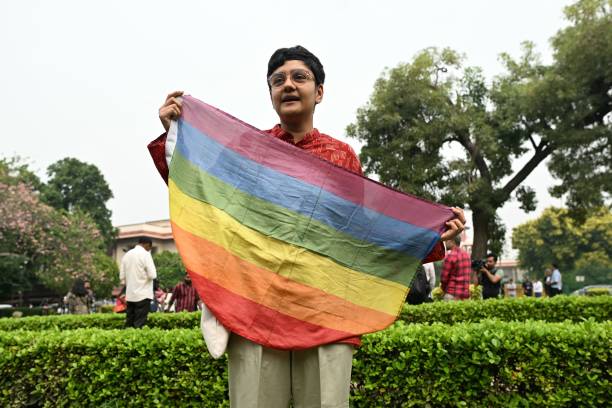
Mr Anand, who has two children with his partner Parth Phiroze Mehrotra, shares his anguish at not being seen as a family unit. Despite raising them as a couple, on paper, the children have only one parent, he says, as he raises concerns about not being able to share joint custody of his children with his partner.
“I mean, if you want to travel abroad, one of the fathers (who is not named as a guardian on paper) can’t really just take a minor child and travel abroad with him,” he explains.
“If one father who is not on the legal papers wants to transfer money to the child for his school or for his college education or while he’s living in another town wants to transfer money to him, he can’t do that without attracting income tax questions.
“The school can declare only one parent, despite having two. It is bad psychologically for the child in every way.”
While, legal rights for the queer community in India have been expanding over the past decade, mostly as a result of the Supreme Court’s intervention, the latest ruling leaves Taiwan and Nepal as the only Asian jurisdictions among 34 nations that permit same-sex marriage.
In 2018, India’s top court struck down a colonial-era law that had made gay sex punishable by up to 10 years in prison and expanded constitutional rights for the gay community. The decision was seen as a historic victory for LGBT+ rights, with one judge saying it would “pave the way for a better future”.
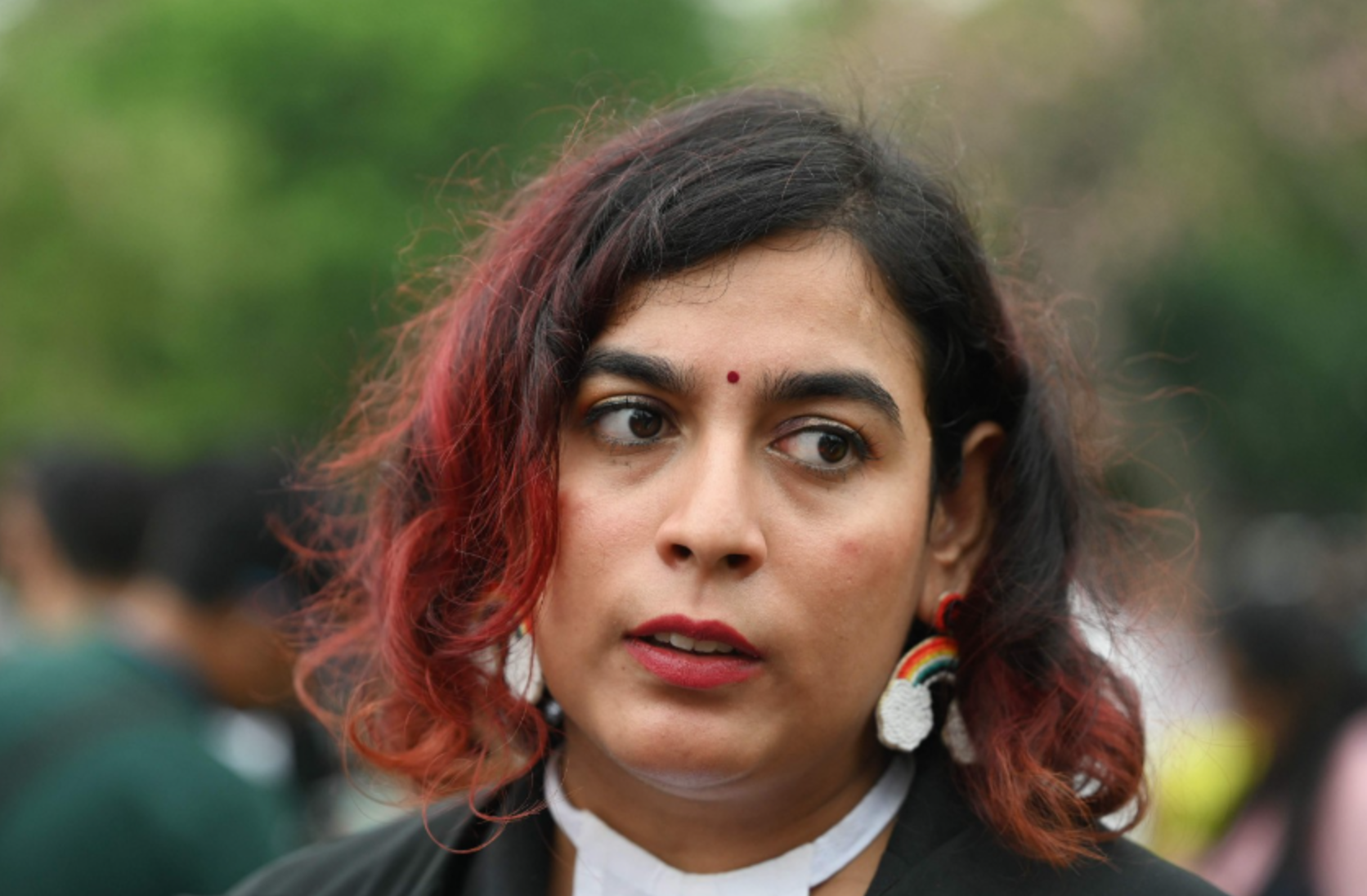
Expressing her deep anguish at the judgment from the apex court, Shrushti Mane, a queer woman residing in Mumbai, said it feels “like a betrayal of the most fundamental principles of fairness and acceptance”.
“I’m quite disappointed by the judges’ stance again,” she tells The Independent. “Despite a hearing that ostensibly addressed discrimination and social acceptance, the judges chose to evade delivering a direct judgment in our favour.
“The judges surely didn’t pass a single judgment in our name, at least not directly. The hearing, instead of being a beacon of hope, felt like a rehearsed script where existing rights were merely sugarcoated without genuine advocacy for LGBTQIA+ rights.
“It’s as though we’ve been given a foot in the door, but the path to LGBTQ+ rights remains obstructed. I am reminded again that hope is more the consequence of action than its cause.”




Join our commenting forum
Join thought-provoking conversations, follow other Independent readers and see their replies
Comments